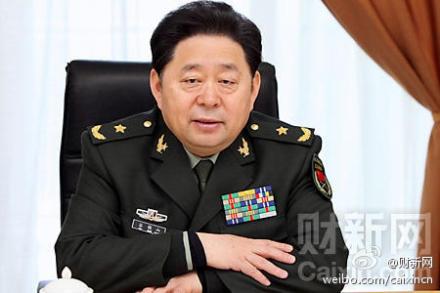The extraordinary fruits of an investigation into the corruption of a People’s Liberation Army logistics chief have been exposed in the Chinese media for the first time. Paramilitary police worked for two nights to seize four trucks’ worth of loot from one of the homes of Gu Junshan: among the items they confiscated were a pure gold statue of Mao Zedong, a golden wash basin, and a boat made of gold.
Crates of expensive Maotai liquor, a fiery drink that is a favorite among Chinese communist officials, were also seized. They were found in the 30-meter-long underground tunnels that linked Gu’s mansion with the homes of his brothers on either side. The houses were in the family’s hometown of Puyang, Henan Province.
But they were only a repository for a fraction of the goods that Gu Junshan, a former military logistics chief, accumulated through a career as a corrupt officer in the armed forces.
Among his other possessions were apartments and land in key areas of Beijing and Shanghai. These he scooped up in his role as a logistics czar. He then sold the land on to developers, and received kickbacks; and he would dole out the apartments he had to other PLA officers whose loyalty he sought to purchase.
Lt. Gen. Gu Junshan was reportedly hauled away in January or February of 2012, but it is only now that leaks to Chinese media agencies in the mainland revealed details of what investigators found, and how Gu ran his empire. The raids on his mansion were said to have taken place in January of 2012.
Caixin, a business magazine, first reported the details. Analysts of China’s complex political alliances have suggested that Caixin has become something of an unofficial mouthpiece for Wang Qishan, the third-top Communist Party official who is leading the regime’s current anti-corruption push. Wang is the Secretary of the Central Commission for Discipline Inspection, the Party’s corruption watchdog.
One of the specific charges against Gu was that he got a 6 percent cut from the sale of a plot of land owned by the military to real estate developers. His mansion in his hometown of Puyang was reportedly modeled after China’s imperial palaces: it had statues, a fountain, large gardens, and living quarters for servants, according to Caixin.
Corruption in the Chinese military is a much greater problem than corruption in civilian life, because military officials are insulated from public opinion and, most of the time, troublesome journalists.
The other salient aspect to the political destruction of Lt. Gen. Gu is the fact that he was promoted in the military by General Jia Tingan. Gen. Jia, the deputy director of the General Political Department of the PLA, is a high-ranking Communist Party official. He was for years a close associate of Jiang Zemin, and was, according to overseas Chinese media who quote insider sources, a top secretary to Jiang.
In this reading, the elimination of Gu Junshan is part of the new Party leadership’s cleansing of the old guard. The taking down of Gu is said to have been orchestrated by Gen. Liu Yuan, another top general with a strong communist pedigree.





